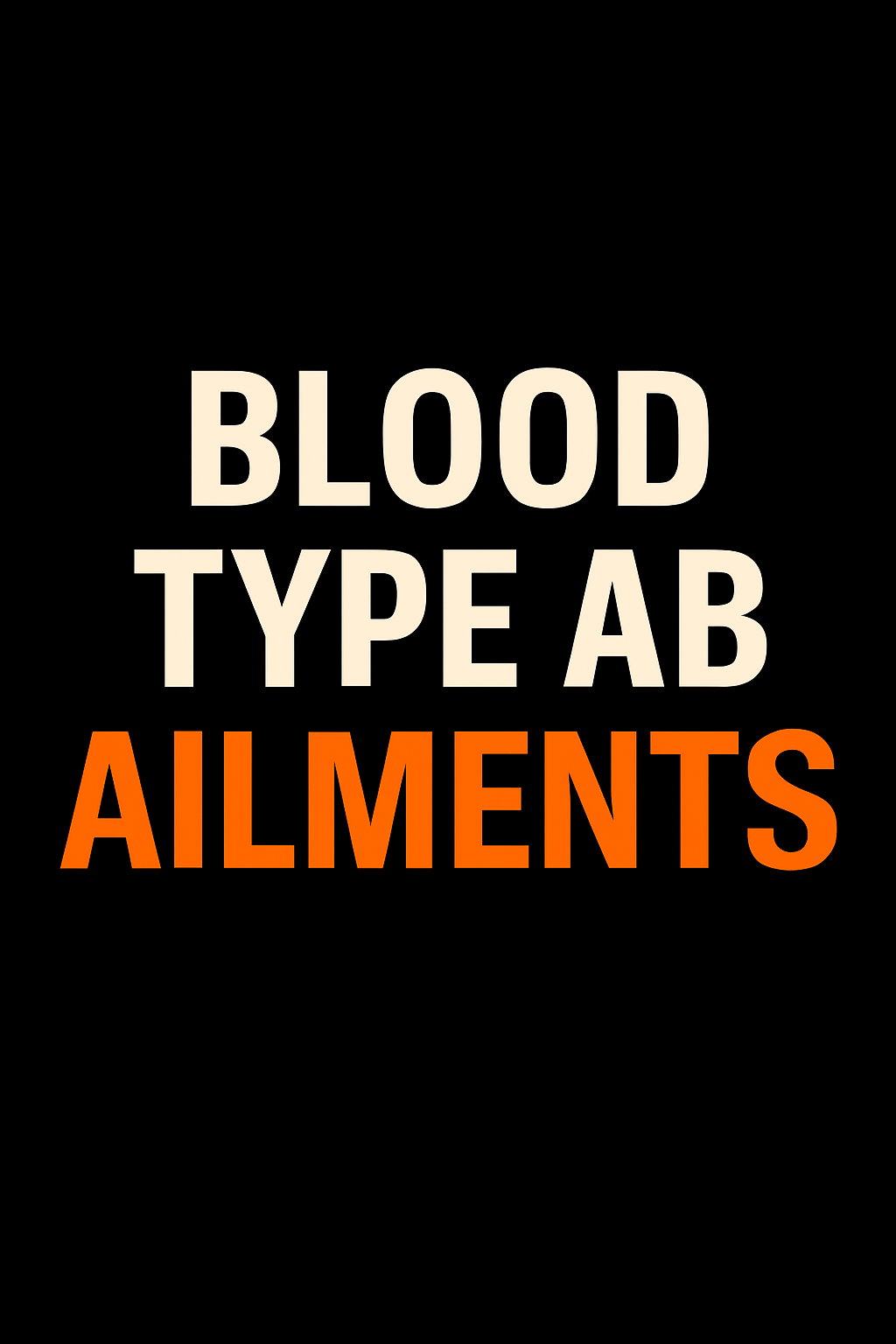🌿 Common Health Challenges in Blood Type AB Individuals
Blood Type AB is the rarest of all blood types—carrying the traits of both Type A and Type B. While this unique combination can offer certain advantages, it also presents a distinct set of health tendencies that AB individuals may want to be aware of.
🔬 1. Bacterial Overgrowth & Gut Dysbiosis
AB individuals may be more prone to imbalances in gut bacteria, known as dysbiosis. This can lead to digestive issues like bloating, gas, irregular bowel movements, and food sensitivities. Because this blood type typically has lower levels of stomach acid, it may struggle to break down proteins efficiently, making a healthy microbiome especially critical.
⚡ 2. Cell-Signaling Irregularities
Some research suggests that Blood Type AB may experience more issues with cellular communication and signaling. This can impact immune system responses, inflammation regulation, and overall energy metabolism. Supporting cellular health with nutrient-dense foods and targeted supplements may help maintain optimal function.
😣 3. Heightened Stress Response
Type ABs often experience a unique biochemical response to stress, combining the cortisol-sensitivity of Type A with the adrenaline-driven bursts of Type B. This can result in fluctuating energy levels, emotional fatigue, or feeling easily overwhelmed. Adaptogenic herbs and calming nutrients may be especially beneficial for this group.
🍅 4. Lectin Sensitivities
Lectins—naturally occurring proteins found in many plants—can interfere with nutrient absorption and trigger immune reactions in AB types. Foods such as lima beans, corn, and tomatoes may be problematic and contribute to inflammation or digestive discomfort. Choosing foods that are neutral or beneficial for Blood Type AB can support better digestive harmony.

